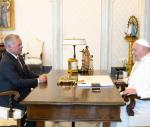You are here
Freedom of the press — a two-way street
Mar 16,2014 - Last updated at Mar 16,2014
The meeting “Legal Media Dialogue” held at the Dead Sea over the past two days may be an occasion to test the resolve of all stakeholders to improve freedom of the press in the country.
The various lawmakers, journalists and legal experts who attended the event suggested ways and means to protect and promote freedom of expression in the country.
The head of the Centre for Defending Freedom of Journalists pressed the government to act on its declared commitment to lift all remaining restrictions on the freedom of press, six months after it promised to do so.
He referred to the periodic reviews of Jordan’s human rights performance by the UN Human Rights Council of 2009 and 2013, which contained a series of recommendations for the purpose of improving freedom of expression.
In 2013, countries at the UN Universal Periodic Review of the Kingdom’s human rights record issued 18 recommendations, among which some calling for cancelling or amending articles in the Penal Code that impose “blatantly unfair” restrictions on the freedom of expression, and on amending the Press and Publications Law to ensure the full protection of freedom of speech.
Of these, 15 were accepted by the government, which voiced reservations over three.
While tackling the issue may involve, as the minister of state for media affairs and communications said, lengthy parliamentary procedures, addressed it has to be.
But even if the political will to reform existing legislation on freedom of press is there and the government is committed to amending the pertinent laws, such change does not involve legislative measures only.
Legislation alone cannot be expected to improve freedom of expression. Needed is a generation of responsible journalists with high levels of integrity and professionalism to set the pace.
Laws are important, but equally important is for media practitioners to exhibit professional conduct.
Impartial reporting and double checking facts come to mind as two foremost traits in the profession.
It should not be forgotten that our fellow journalists shape opinion on larger scale than imagined. As such, the “written” word, most often considered sacred, needs to be weighed carefully before used.
And only then should journalists ask for absolute “freedom” to use it.













